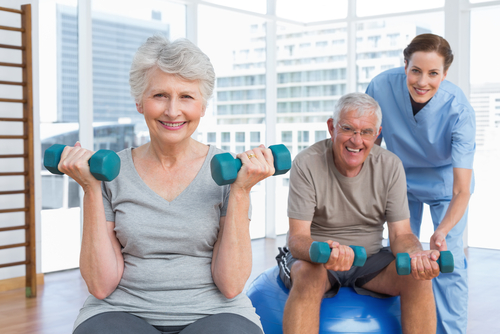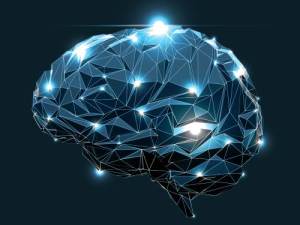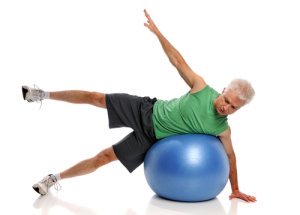Authors:
History:
 It is known for a long time that physical activity benefits health. That was Hippocrates who said that nothing exhausts an organism more than physical inactivity. That fact is confirmed by our everyday experience as well as scientific researches.
It is known for a long time that physical activity benefits health. That was Hippocrates who said that nothing exhausts an organism more than physical inactivity. That fact is confirmed by our everyday experience as well as scientific researches.
However, benefits of mental exercises, cognitive games and memory training were only hypothesized for a long time. However, in 2000s, neuroscientist from the University College of Irvine obtained convincing evidence that training improves brain health. Their investigations have shown that memory training, cognitive games and exercises have positive effect at neurons regeneration in human brain.
Example:
 Scientists from the European Society of Cardiology’s have proved that only 15 minutes of physical exercises a day decrease risk of death in elderly people at 51%. The report covering the results of that research was read at EuroPRevent conference in 2015.
Scientists from the European Society of Cardiology’s have proved that only 15 minutes of physical exercises a day decrease risk of death in elderly people at 51%. The report covering the results of that research was read at EuroPRevent conference in 2015.
In 2013, the Neurology journal published a paper submitted by scientists of the Rush University Medical Center, Chicago. That paper claims that regular mental activity maintains memory in elderly age.
Description:
There is abundant scientific evidence that regular physical and mental activity effect positively at physical and mental health. Physical exercises positively influence specific aspects of metabolism.
 World Health Organization (WHO) states that physical exercises is the best way for diseases prevention for elderly people as well as for young ones. According to WHO, physically active elderly people have lower indices of death from cardiologic, metabolic and some oncological diseases. They have biomarker profile which favour preventing the development of cardiovascular diseases and diabetes type 2, and help improving the health of bones. Physically active elderly people have also higher levels of functional health and cognitive function; they have lower risk of moderate and severe functional and role limitations.
World Health Organization (WHO) states that physical exercises is the best way for diseases prevention for elderly people as well as for young ones. According to WHO, physically active elderly people have lower indices of death from cardiologic, metabolic and some oncological diseases. They have biomarker profile which favour preventing the development of cardiovascular diseases and diabetes type 2, and help improving the health of bones. Physically active elderly people have also higher levels of functional health and cognitive function; they have lower risk of moderate and severe functional and role limitations.
Scientists believe that easy physical exercises for elderly people could be enough to decrise the risk of death substantially. Exercises could include active pacing, riding the bicycle, swimming and gymnastics. Furthermore, it was shown that people maintaining brain activity during the life by means of cognitive activity have lower level of β-amiloid protein that is believed to be one of the main reasons of Alzheimer’s desease.
Additions and Criticism:
 Modern scientists concluded that elderly people need not only physical, but also mental exercises. Unfortunately, this fact is not given appropriate consideration in our country. Developmental exercises and games are necessary not only for preschool child, but also for elderly people. It should be recommended to all our elderly people that they to do gymnastics for body and mind!
Modern scientists concluded that elderly people need not only physical, but also mental exercises. Unfortunately, this fact is not given appropriate consideration in our country. Developmental exercises and games are necessary not only for preschool child, but also for elderly people. It should be recommended to all our elderly people that they to do gymnastics for body and mind!
Publications:
- Hauer, Klaus, et al. «Intensive physical training in geriatric patients after severe falls and hip surgery." Age and ageing 31.1 (2002): 49–57.
- Rydwik, Elisabeth, Kerstin Frändin, and Gunnar Akner. «Effects of physical training on physical performance in institutionalised elderly patients (70+) with multiple diagnoses." Age and Ageing 33.1 (2004): 13–23.
- Toulotte, Claire, et al. «Effects of physical training on the physical capacity of frail, demented patients with a history of falling: a randomised controlled trial.«Age and ageing 32.1 (2003): 67–73.
- Corbi, Graziamaria, et al. «Role of sirtuins, calorie restriction and physical activity in aging." Front Biosci (Elite Ed) 4 (2012): 768–778.
-
Maillot, Pauline, Alexandra Perrot, and Alan Hartley. «Effects of interactive
physical-activity video-game training on physical and cognitive function in older adults." Psychology and aging 27.3 (2012): 589. - Hertzog, Christopher, et al. «Fit Body, Fit Mind?." Scientific American 24 (2015): 40–47.
-
Wilson, Robert S., et al. «Influence of
late-life cognitive activity on cognitive health." Neurology 78.15 (2012): 1123–1129.